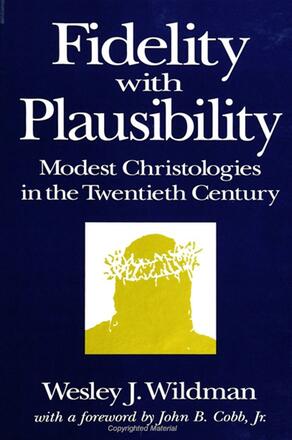
Fidelity with Plausibility
Modest Christologies in the Twentieth Century
Alternative formats available from:
Description
The task of interpreting the religious significance of Jesus Christ takes shape in this book with the tension determined by two goals: fidelity to the classical Christological tradition, which draws our attention to Jesus in the first place, and plausibility with respect to all forms of contemporary knowledge. To ignore the classical tradition is to assume uncritically that contemporary plausibility structures are beyond question, while to forsake plausibility is to embrace the irrationalism of the theological ghetto-dweller. This book argues that maintaining this tension in our time can be achieved only with a modest interpretation of Jesus Christ, one that repudiates the hermeneutical absolutism associated with affirming that Jesus Christ is uniquely, exhaustively, unsurpassably significant for revelation and salvation.
Wesley J. Wildman is Assistant Professor of Theology at Boston University. He is coeditor with W. Mark Richardson of Religion and Science: History, Method, Dialogue.
Reviews
"This book's scope is unusually wide: it truly deals with Christology across the whole range of relevant issues--philosophical, historical, scientific, religious. It has a clear, consistent thesis: the advocacy of 'modest Christologies.' The thesis has significant originality, for Wildman points out strikingly the way in which 'modest' Christologies need not be 'low' ones and the way in which Christologies may make many 'modest' sounds and still remain structurally 'absolute.' The book is organized with clarity and briskly written--rarely lingering on a subject once the argument has been made. The topic is highly significant--Wildman addresses core questions of a core subject." -- S. Mark Heim, Andover Newton Theological School